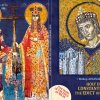Born in Belgrade, Yugoslavia, during the reign of the Nazis and raised under the oppression of the post-war Socialist regime, he knew first-hand the privations of not being able to exercise the rights many U.S. citizens take for granted.
.Pejovich championed his free-market stance at the Texas A&M Department of Economics where he taught for over 25 years.
To honor his distinguished contributions to the field, as well as to inspire and educate generations of Aggies, the College of Liberal Arts and former Pejovich student Sheila Amin Gutiérrez de Piñeres ’88 have established the Professor Svetozar Pejovich Future Leaders Award for Texas A&M University undergraduate economics students.
The award is an endowed fund for the benefit of Aggies taking part in The Heritage Foundation Internship Program. Students selected for the coveted spots will receive scholarships from this award to defray, and hopefully one day cover, the costs of interning in Washington, D.C.
Founded in 1973, The Heritage Foundation is a research and educational institution—a think tank—whose mission is to formulate and promote conservative public policies based on the principles of free enterprise, limited government, and individual freedom. The internship program attracts young leaders of the highest caliber who are given substantive work, acquire policy expertise, and build marketable skills.
Source: Texas A&M Foundation





